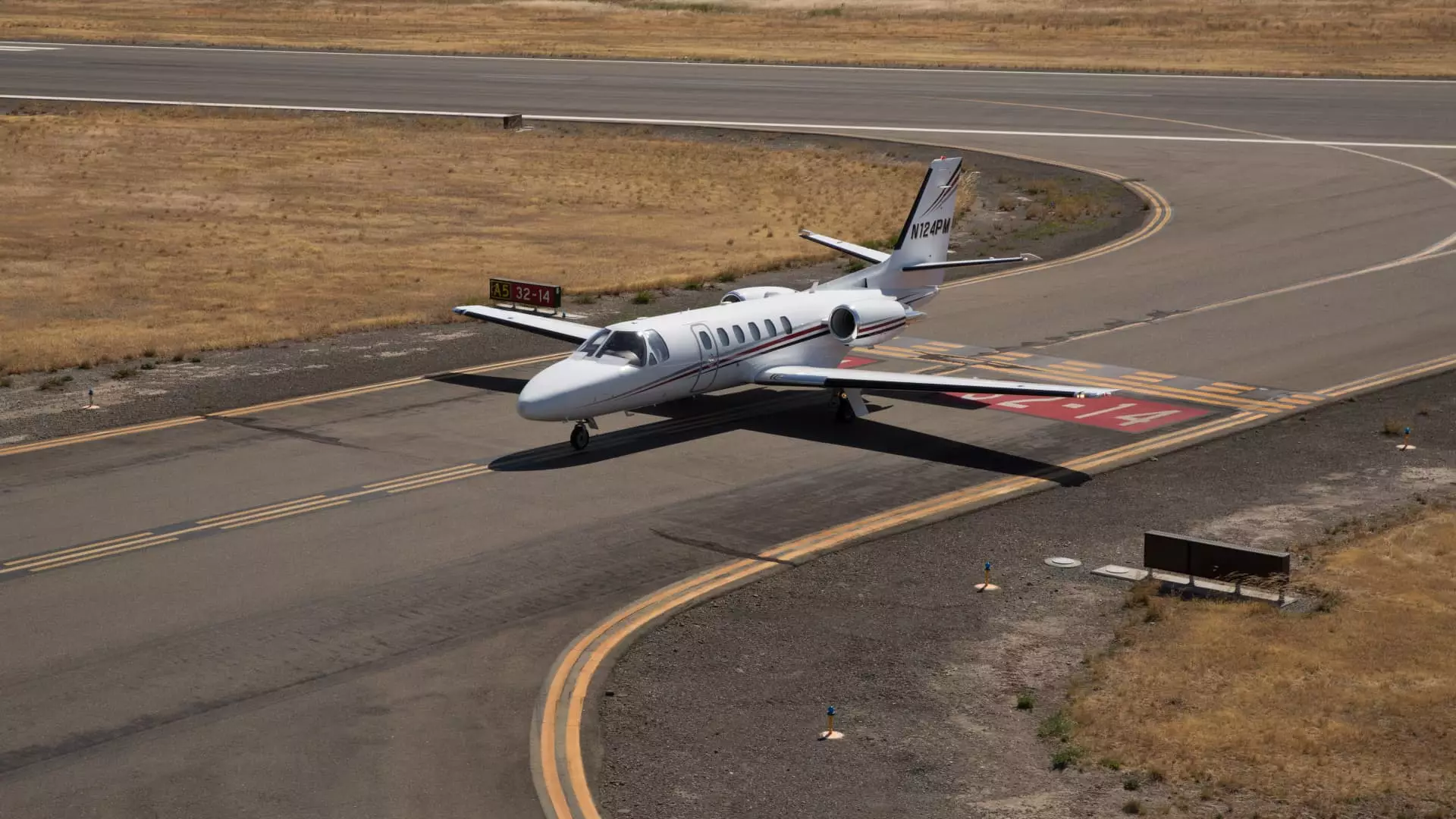In a disheartening turn of events, consumer confidence in the luxury aviation sector is crumbling, and the facts don’t lie. A recent survey from Barclays highlights a dramatic 49% drop in the interest in purchasing business jets since March. This is not just a minor blip; it’s a sharp nosedive into an uncertain future that reflects broader economic anxieties. Even affluent consumers, those who historically buoyed demand through their discretionary spending, are pulling the reins tight as the fear of recessions looms large on the horizon.
The comprehensive assessment conducted between April 9 and 15 reveals much more than mere statistics; it warns of a sector stagnating under the weight of economic paranoia. The Barclays Business Jet Indicator—which employs a palette of five metrics, including future outlook and pricing—plummeted from a score of 52 to 40 within just one month. This recent shift is alarming, as it marks the steepest decline observed since the onset of the Covid pandemic. The psychological toll of this downturn cannot be overstated; a composite score that dips into the low 40s signals a market besieged by trepidation.
Tariffs Create Chaos and Hesitation
Central to this malaise is the chilling effect of tariffs that have cast shadows over consumer sentiment. Nearly 93% of survey respondents conveyed grave worries regarding the impact of these tariffs on new aircraft demand. This staggering consensus reveals a landscape poorly suited for investment and growth, wherein fear and uncertainty act as handcuffs to consumer spending.
Participants echoed a similar sentiment regarding the used jet market, signaling a pervasive pessimism. Sixty-seven percent of individuals surveyed predict at least a minor negative impact on demand for pre-owned jets. The apprehension surrounding the tariffs is palpable, and it raises eyebrows about the future economic landscape. The key question remains: will these tariffs continue to stifle an otherwise flourishing industry?
The Reality of Stalled Purchases
As business leaders grapple with mounting uncertainty, a notable 46% of respondents reported that clients have hitting the pause button on potential purchases. This is indicative of a hesitant market where operational concerns dominate over ambitious investments. The psychological barrier caused by economic volatilities has evidently led even the most affluent buyers to second-guess their spending.
The gravity of this situation is compounded by the fact that traditional barometers of economic health—like the book-to-bill ratio—signal distress. A score indicative of manufacturing orders lagging by about 10% translates to alarming imbalances within the production ecosystem. It becomes abundantly clear that the business jet sector is not merely experiencing a slowdown; it’s teetering on the cusp of stagnation.
A Ray of Hope Through Legislation
Nevertheless, in every shadowy corner of despair, there exists a sliver of potential salvation. Legislative maneuvers may offer a lifeline for jet manufacturers. Recent budget resolutions put forth by the Senate and House aim to extend provisions from the Tax Cuts and Jobs Act. The expected ability for businesses to deduct 100% of equipment purchases could reinvigorate investment sentiment within the industry.
Republican lawmakers are eyeing the opportunity to reignite consumer confidence through retroactive deductions, which could spark renewed interest in business jet acquisitions. If successfully implemented, this could serve as a balm for a troubled market, allowing manufacturers to gain traction amidst turbulent economic conditions. The efficacy of this change remains to be seen, but hope springs eternal in the face of adversity.
While the future remains uncertain, one thing is clear: the current climate requires bold actions and innovative solutions to navigate the uncharted skies ahead. The business jet market is more than just numbers; it represents aspirations, dreams, and stories of success. It deserves support in overcoming the turbulence of external economic pressures. Failure to act decisively could result in an industry that stalls when it should soar.


Leave a Reply